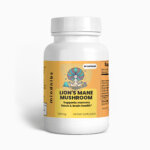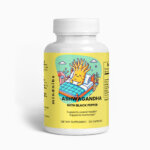
“Measuring Up: How to Assess the Effectiveness of Your Supplements”
Are you tired of feeling unsure about the effectiveness of the supplements you’re taking? With the overwhelming amount of information available online, it can be challenging to navigate the world of supplements and decide which ones are right for you. But fear not – with the right tools and knowledge, you can assess the effectiveness of your supplements and make informed choices about your health. In this article, we’ll discuss some of the most important factors to consider when measuring the effectiveness of your supplements. By the end, you’ll have the tools you need to ensure that you’re taking supplements that truly make a difference in your health and wellbeing.
1. Introduction: The Importance of Measuring Supplement Effectiveness
Measuring supplement effectiveness is an important aspect of maintaining a healthy lifestyle. Supplements are often taken to improve overall health and wellness, but without proper measurement, it is impossible to know if they are truly effective. This is why it’s crucial to not only research supplements but to also measure their effectiveness accurately.
The benefits of taking supplements are numerous and can include improving cognitive function, boosting immunity, and aiding in weight loss. However, not all supplements are created equal, and some may not work as advertised. Measuring supplement effectiveness is a critical step in ensuring that you are getting the most out of your supplements.
By measuring your supplement effectiveness, you can also make any necessary adjustments to your supplement regimen. This can include changing the type or dosage of a supplement or even stopping altogether if it is not proving to be effective. With proper measurement and monitoring, you can optimize your supplement intake and ensure that you are getting the most out of your health and wellness routine.
2. Understanding Supplement Labels: What to Look For
Supplement labels can be intimidating and confusing for individuals who are not familiar with the terminology. However, understanding the information presented on the label is crucial for making informed decisions about which supplements to use and how to use them effectively.
One important element to consider when reading a supplement label is the list of active ingredients. It is vital to ensure that the supplement contains the exact ingredients and dosage as advertised. This information can be found under the “Supplement Facts” section of the label. Additionally, it is important to note any allergen warnings or other potential side effects.
Another critical component to consider is the serving size and recommended use. The serving size is the amount of supplement that should be consumed per serving, while the recommended use outlines the frequency and timing of the servings. Be sure to follow these instructions carefully and consult with a healthcare professional before exceeding the recommended daily dosage.
In conclusion, understanding supplement labels is imperative for making informed decisions about which supplements to use and how to use them safely and effectively. Take the time to carefully read and analyze supplement labels, paying close attention to the list of active ingredients, serving size, and recommended use. By doing so, you can ensure that you are getting the most out of your supplements and achieving your health and wellness goals.
3. Tracking Your Progress: Keeping a Supplement Journal
One of the best ways to track your progress and gain insight into the effectiveness of your supplements is by keeping a supplement journal. This simple but powerful tool can help you identify specific changes to your body, mind, and overall health as you continue to take supplements. By recording your observations and experiences in a dedicated journal, you can gain a deeper understanding of how your body responds to certain supplements and make informed decisions about future health goals.
To start keeping a supplement journal, choose a notebook or app that you can access easily and frequently. Each time you take a supplement, record the date, time, and dosage in your journal. Make note of any changes or effects you experience, such as mood changes, energy levels, digestion changes, or sleep quality. You may also want to track other factors that could impact your supplements, such as diet, exercise, and stress levels.
As you continue to use your supplement journal, you can begin to identify patterns and trends that can help you make more informed decisions about your health. Compare your notes from different days, weeks, or months to see how your body responds to changes in dosage, timing, or other factors. Use these insights to adjust your supplement regimen, set new goals, and make more informed decisions about your overall health and wellbeing. By keeping a supplement journal, you can gain a deeper understanding of the impacts of supplements on your body and mind, and use this knowledge to achieve your optimal health.
4. Before and After Measurements: The Importance of Baselines
When undertaking any project or program, it’s essential to have a baseline or initial measurement to compare and evaluate any progress made towards achieving goals. This measurement is crucial in determining whether the program is effective or not and helps to set realistic targets.
Before and after measurement is a common practice in various fields such as healthcare, education, and business. Having a baseline allows individuals or organizations to track changes and progress made, measure success, and even make necessary adjustments to improve the program’s effectiveness.
Furthermore, baselines provide a clear picture of the situation before implementing any changes or interventions. This data can help identify areas needing improvement and serves as a guide for the program’s design and implementation. Without a baseline, it can be challenging to measure progress or determine whether the program has achieved its intended results.
- Having a baseline helps to:
- Set objectives and goals
- Track and measure progress made
- Determine the program’s success or effectiveness
- Identify areas requiring improvement
Therefore, it’s fundamental to establish a baseline or initial measurement before starting any program or project. This practice sets the foundation for future evaluations and helps to determine if the program has achieved its intended results. Adequate planning and preparation, including baseline measurements, are crucial for a successful and effective program.

5. The Role of Blood Tests in Supplement Evaluation
Blood tests are vital in supplement evaluation, as they provide objective data on the efficiency of the supplements. The results from the blood test can help in measuring the levels of essential micronutrients in the body, such as vitamins, minerals, and hormones. By evaluating the levels of these critical substances, it is easier to identify if there are any deficiencies or imbalances which need to be addressed. Therefore, blood tests are crucial in supplement evaluations, as they help to identify the areas that require more focus.
Additionally, blood tests provide insightful information on whether the supplements have any adverse effects on the body. For instance, some types of supplements can cause to issues like liver or kidney damage. The role of a blood test is to identify if there are any such issues and recommend interventions to correct the problem. Blood tests provide a detailed picture of your health, and it’s important to use the results to design a supplement plan that is tailored to address the needs of your body.
To get accurate and reliable results when using blood tests to evaluate supplements, it is crucial that you engage a qualified practitioner to conduct the test. You should work with a qualified medical practitioner who will help you interpret the results and give you the proper advice to optimize your supplement intake based on your results. In conclusion, cannot be underestimated. It’s crucial to use these results to identify any deficiencies or imbalances and recommend appropriate interventions to optimize your health.
6. Seeking Professional Guidance: Consulting with a Healthcare Provider
When it comes to your health, it’s always important to seek professional help. Consulting with a healthcare provider can help you better understand your symptoms, undergo necessary tests, and receive the right treatment.
One benefit of consulting with a healthcare provider is getting access to their medical expertise. Healthcare providers possess the knowledge and skills to diagnose and treat various medical conditions. They also have the necessary resources to order tests that can help diagnose your condition accurately.
Furthermore, consulting with a healthcare provider may lessen the possibility of complications arising from self-treatment. Self-diagnosing or self-treating can lead to errors in medication or dosage, which could worsen your symptoms or increase the risk of complications.
- Get accurate and timely diagnosis and treatment
- Learn about potential health risks through the advice of a medical professional
- Obtain prescription medications necessary to treat your condition
- Receive guidance on ways to make positive changes to your daily routine to improve your health
If you’re still unsure about seeing a healthcare provider, remember that they exist to help you. Their goal is to help you stay healthy and feel your best. Don’t hesitate to seek their professional guidance should you experience any health concerns.
7. Conclusion: Making Informed Decisions About Your Supplements
When it comes to taking supplements, it’s essential to make an informed decision to ensure you’re getting the right nutrients in the appropriate amounts. In this article, we’ve discussed the importance of researching supplements and understanding the labels so you can make an educated decision.
Before purchasing a supplement, think about the needs of your body and whether the supplement will fulfill those needs. Always consult with a medical professional before starting any new supplement regimen, especially if you have underlying health conditions or are taking medication.
Remember, taking supplements can be beneficial, but it’s crucial to do it responsibly. By doing your research, understanding the labels, and consulting with a healthcare professional, you can make informed decisions about which supplements will give you the most benefits.
- Do: Research and understand the supplement you are considering taking.
- Don’t: Rely solely on advertising or the opinions of friends and family.
- Do: Consult with a healthcare professional before taking any new supplements.
- Don’t: Take supplements without first understanding the effects they may have on your body.
- Do: Follow recommendations for dosages and use.
- Don’t: Overdose on supplements or take them for extended periods without medical supervision.
Taking supplements can be a valuable addition to a healthy lifestyle if done responsibly. By understanding what you are taking and why, you can ensure your supplement regimen complements your diet and supports your overall wellbeing.
We’ve discussed some important considerations when it comes to evaluating the effectiveness of your nutritional supplements. The bottom line is that with a few simple steps, you can determine whether the supplements you are taking are helping you reach your overall health goals or not. And remember, if you ever have any questions or concerns, be sure to consult with a qualified health professional.

























